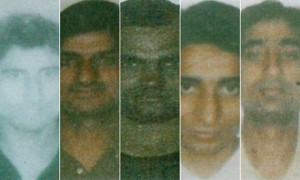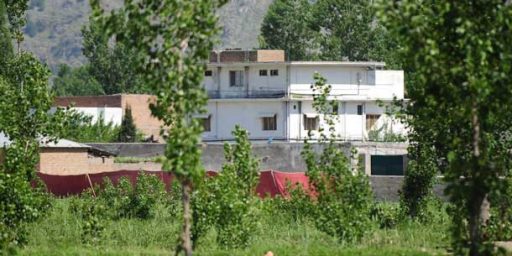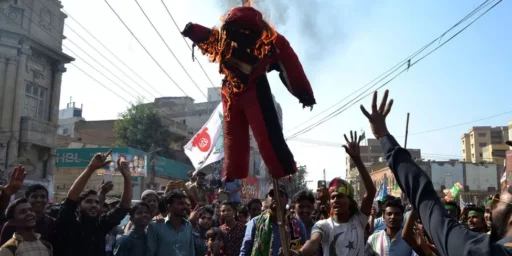Indian Government Names Mumbai Suspects
 The Indian government has announced the names of all of the nine dead terrorists responsible for the attacks in Mumbai last month:
The Indian government has announced the names of all of the nine dead terrorists responsible for the attacks in Mumbai last month:
Police in Mumbai today released the identities and home addresses in Pakistan of the nine dead gunmen who allegedly attacked India’s financial centre last month – in a move apparently intended to increase the pressure on the Pakistani government.
According to the information released all nine were Pakistanis. And they had ties to the Lashkar-e-Taiba:
The leader of the group is said to have been Ismail Khan, whose home is in Dera Ismail Khan – a town in the lawless area near the border between Pakistan and Afghanistan. Rakesh Maria, joint commissioner of Mumbai police, told journalists that his expertise with GPS marked him out.
“This was not his first operation for the Lashkar,” he said, referring to the armed Islamist group blamed by India for the Mumbai terror attack. India says that for years it was Pakistani policy to use guerrilla groups such as Lashkar as proxies in the conflict over the disputed Himalayan territory of Kashmir.
If true this would appear to rule out domestic Indian Islamist terrorism.
Pakistan’s next moves will be critical. New Delhi has been skeptical of a joint investigation; the Pakistanis have been reluctant to allow the Indian government to conduct its own interrogations.
Pakistani officials are engaged in a delicate dance. A crackdown on terrorist groups within Pakistan is necessary if the government is to be any more than in name only. Cracking down too hard could cost them political support. Failing to cooperate with the Indian government could lead to war between the two countries. Being too cooperative could cause the government to fall.





If India goes to war with Pakistan, the militants in the tribal region will be forced to cooperate and coordinate with the Pakistani military or else leave a large undefended border.
Once those operational ties are established, those militant groups will find it difficult to get back to their current level of anonymity and autonomy.
In terms of our national security, preventing a shooting war between these two countries is probably the most important thing we could do.
Why? We’ve had plenty of border skirmishes before, even after they became nuclear powers. It may even help bolster public support for the Pakistani government, it would reduce support for the militants who are trying to weaken it.
Aren’t the Federated Autonomous Tribal Areas on the wrong side of the country? That is, they border Afghanistan, not India. I would suggest to Michael that it’s very hard to predict what may happen once the shooting starts and things get out of control. There’s so much emotion and historical antagonism between the two countries that it’s very easy to escalate to the nuclear option in very short time.
Yes, they border Afghanistan not India, but the also border Kashmir. The Pakistani military will need at least a logistics presence there to defend it’s north and north-eastern territory.